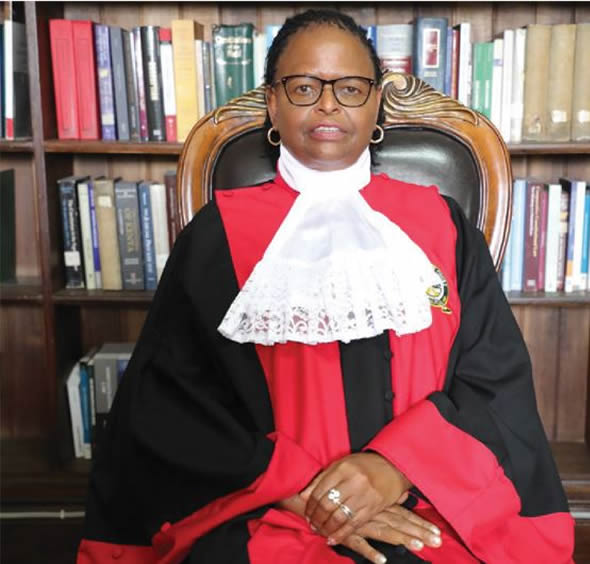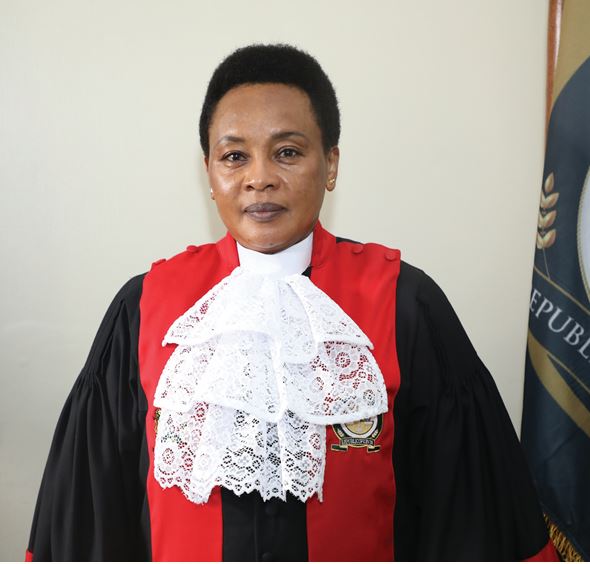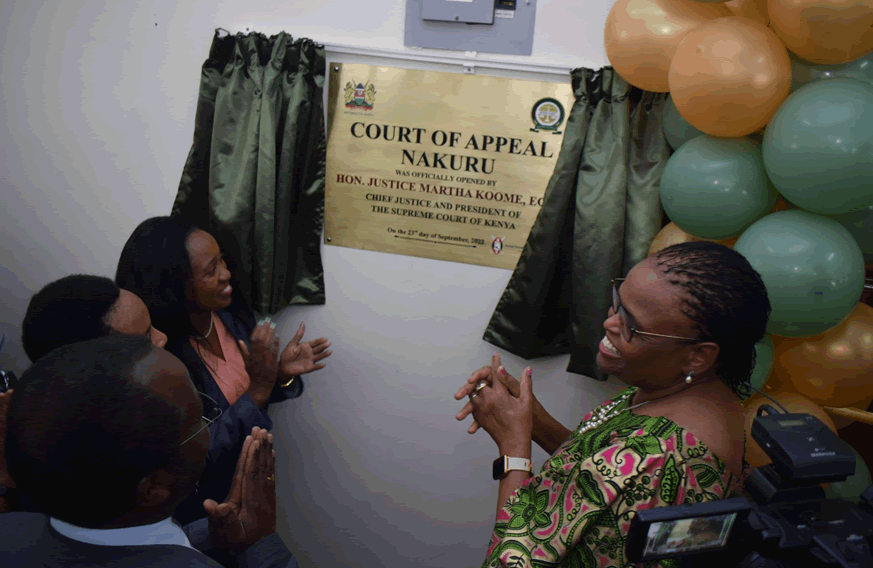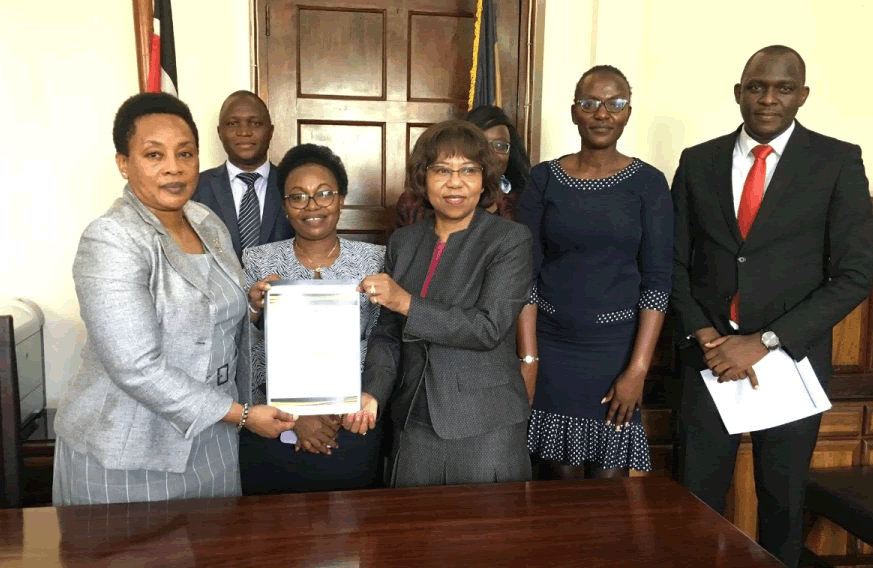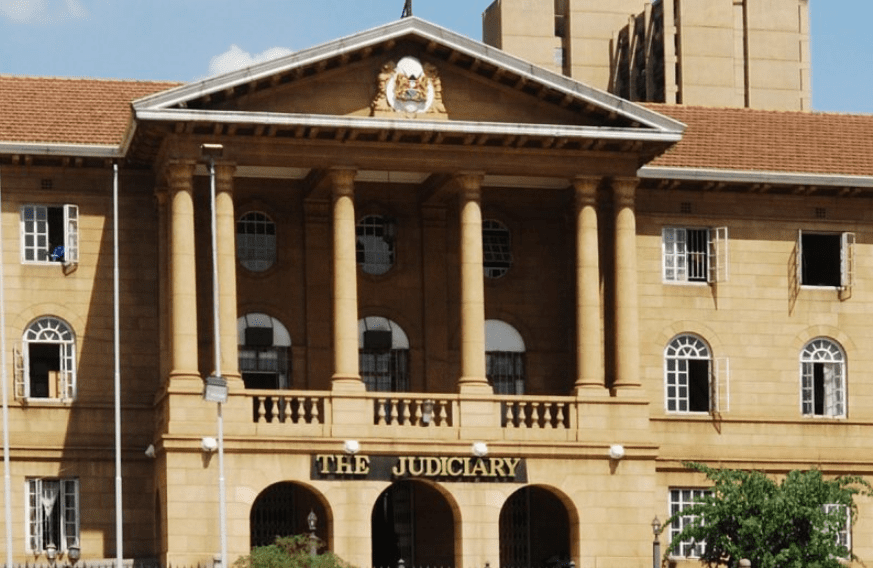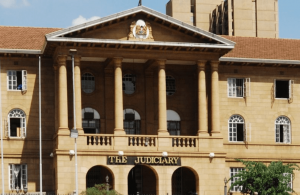 The Judiciary is one of the three State organs established under Chapter 10, Article 159 of the Constitution of Kenya. It establishes the Judiciary as an independent custodian of justice in Kenya. Its primary role is to exercise judicial authority given to it, by the people of Kenya.
The Judiciary is one of the three State organs established under Chapter 10, Article 159 of the Constitution of Kenya. It establishes the Judiciary as an independent custodian of justice in Kenya. Its primary role is to exercise judicial authority given to it, by the people of Kenya.
The institution is mandated to deliver justice in line with the Constitution and other laws. It is expected to resolve disputes in a just manner with a view to protecting the rights and liberties of all, thereby facilitating the attainment of the ideal rule of law. Read More About Us
Judiciary Leadership
 Social Transformation Through Access to Justice …Delivering on the constitutional promise of a renewed commitment to rights and multiple avenues of access to justice…….
Social Transformation Through Access to Justice …Delivering on the constitutional promise of a renewed commitment to rights and multiple avenues of access to justice…….
Alternative Disputes Resolution
Article 159 of the Constitution mandates the Judiciary to use Alternative Dispute Resolution mechanisms including Mediation. arbitration, negotiated rulemaking, neutral factfinding, and minitrials.
Small Claims Court
The Small Claims Court is established by the Small Claims Act 2016. This a subordinate court in the structure of the court system in Kenya under Article 169 (1) of the Constitution with a monetary jurisdiction of matters not exceeding Kshs1 million.
Court Annexed Mediation
Court Annexed Mediation (CAM) was introduced by the Judiciary in an effort to alleviate case backlog and in line with Article 159 (2) (c) of the Constitution which mandates the Judiciary to promote alternative forms of dispute resolution including reconciliation, mediation, arbitration and traditional dispute resolution mechanisms.
Leadership in Judiciary Courts
Five principles guiding the Vision of the Judiciary are Accessibility and efficiency, Transparency and accountability, Inclusivenesss and shared leadership. In the spirit of inclusiveness, shared leadership & endeavor for transparency & accountability different courts are headed by Principal or Presiding Judge with the court of appeal and the supreme court headed by a president.
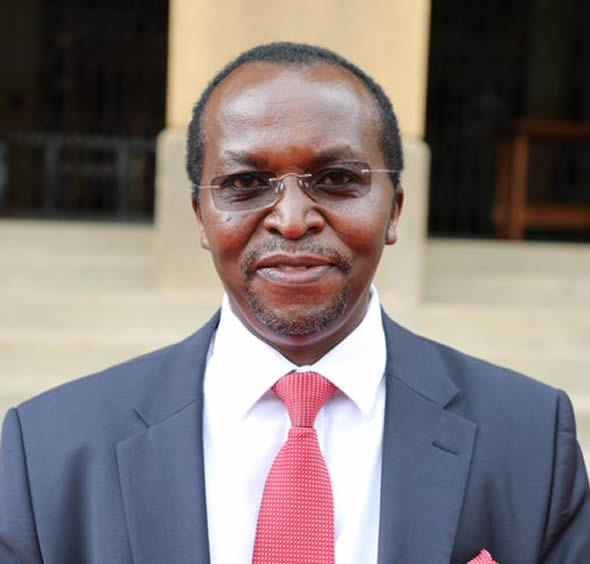
President Court of Appeal
Hon. Justice Daniel Musinga
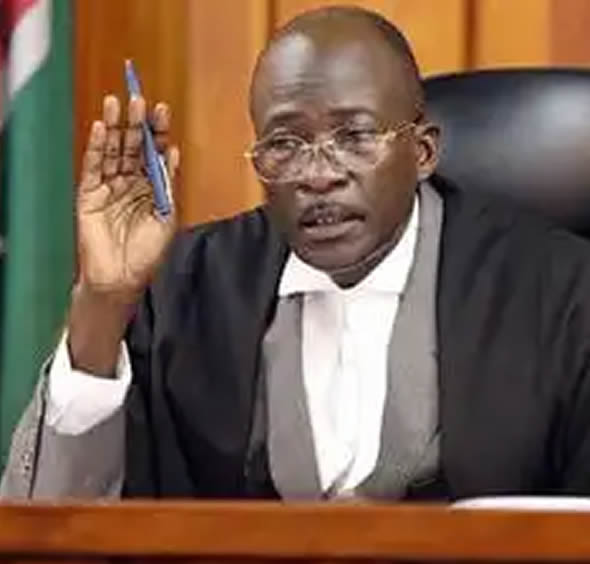
Principal Judge, High Court
Hon. Justice Eric Kennedy Okumu Ogola

Principal Judge, ELRC
Hon. Justice Byram Onyaya

Presiding Judge, ELC
Hon. Justice Oscar A. Angote
Growing day by day through consistent performance and development projects
For authentic news, Notices and announcements from the Judiciary visit this section regularly
The Judiciary partners with governmental, non-governmental and private sector players in the areas of Research & Policy Development with a focus on Judiciary Social Transformation through Access to Justice (STAJ).




